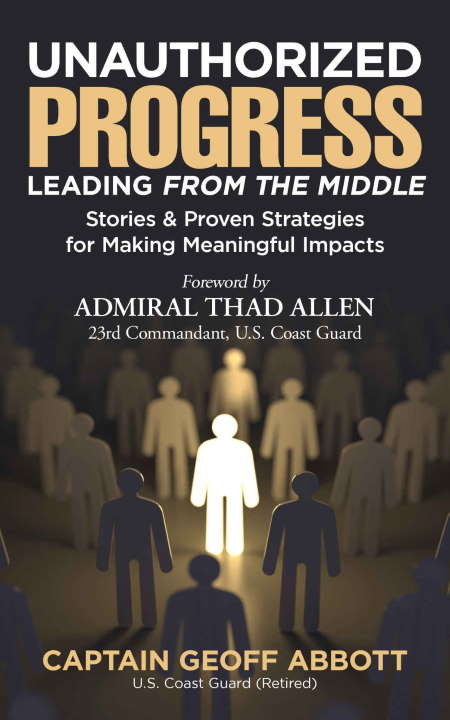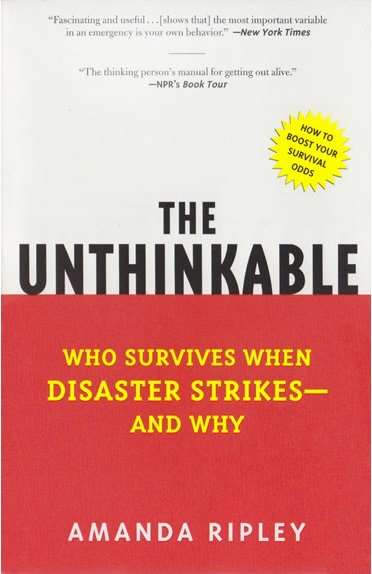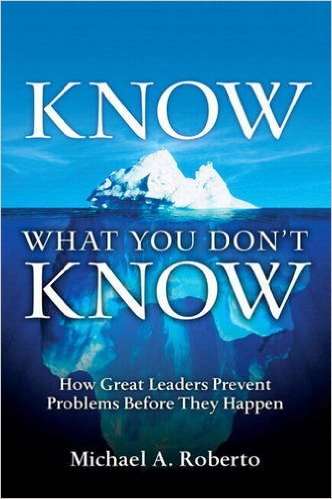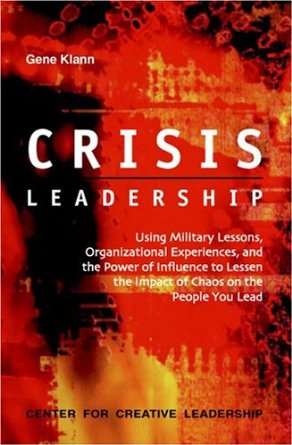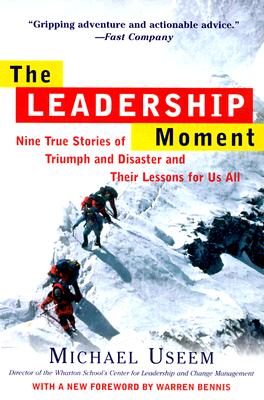Crisis Leadership in Government
Articles
- Seven Hard Lessons Federal Responders to Harvey Learned from Katrina
Insights about why rescue efforts after Hurricane Harvey were faster and more robust than after Katrina.
- After Nairobi: Recovering from Terror, by Prudence Bushnell
Ambassador Bushnell describes how her team recovered after the 1998 bombing of the U.S. Embassy Nairobi.
- Courage in Crisis
Article from GovExec.com about Ambassador Prudence Bushnell's efforts to stop the genocide in Rwanda. - Leadership Lessons from the Shackleton Expedition, by Nancy F. Koehn
Great summary of the Shackleton story by the author of Forged in Crisis.
- Bystanders to Genocide, by Samantha Power
Fascinating analysis of how and why the U.S. government failed to stop the genocide in Rwanda.
- The Question That Should Guide All Government Leaders, by Robert D. Behn
The importance of focusing on near misses as a strategy for preventing disasters.
- The Hint Behind "That's Funny", by Robert D. Behn
When something unexpected makes you say, "That's funny," it might be an indicator that a crisis is brewing.
- Planning to Manage Your Next Crisis Decisively and Effectively, by Barry Cross
Article from the Ivey Business Journal
- The Self-Designing High-Reliability Organization: Aircraft Carrier Flight Operations at Sea
Aircraft carrier operations are like being in an ever-recurring crisis. This article explains how the US Navy makes it work.
- Reworking Intuition
Simulations that push your team to the failure point can generate significant learning.
Online Training
- Leadership and Influence
Free online emergency management course produced by FEMA.
Resource Guides
- Ready.gov
Emergency planning resource for families. Your team members will be more resilient during an emergency situation if their families have prepared for it. - Handling Traumatic Events: A Manager's Handbook
Superb resource from OPM. - Helping Others Cope with Grief
Booklet by LifeCare, Inc., includes a section on helping co-workers who are grieving.
Podcasts
-
When to Listen to a Dire Warning, from HBR IdeaCast
Former National Coordinator for Security, Infrastructure Protection, and Counter-Terrorism Richard Clarke talks about the importance of listening when a member of your team warns you about a disaster that may be coming. Based on Clarke's book Warnings: Finding Cassandras to Stop Catastrophes.
Books
The Unthinkable: Who Survives When Disaster Strikes--and Why
Ever wonder why some people freeze in a crisis, some panic, and others know just what to do? Then this book is for you. Amanda Ripley conducted extensive research and interviewed survivors of major crises to identify the factors that help people survive--and even thrive--during a crisis. This book can help you learn to avoid the denial and decision paralysis that cause many people to become useless during a crisis. Please read this book--and have your team do the same. Read More...Know What You Don't Know: How Great Leaders Prevent Problems Before They Happen
The best way to manage a crisis is to prevent it from happening in the first place. Michael Roberto's book Know What You Don't Know provides a useful framework that can help leaders learn to surface problems before they fester and erupt into a crisis. Includes chapters on how senior leaders can circumvent their "gatekeepers" to get an unvarnished view of what is going on in the organization, how to connect the dots, and how to talk about and listen for problems. Also focuses on the importance of intellectual curiosity, systemic thinking, and "healthy paranoia." Highly readable with many real-world examples. Read More...
Shackleton's Way
Ernest Shackletons' Antarctic adventure is one of the greatest known stories of crisis leadership. Shackleton's Way draws on many sources, including the writings of Shackleton and his men, weaving a compelling portrait of Shackleton while describing the many difficult situations that he and his men had to overcome in their fight for survival. There are many other great tellings of the tale, such as Alfred Lansing's book Endurance and the HBO min-series Shackleton (starring Kenneth Branagh). But if you are looking for a version that focuses on Shackleton's leadership, you will love this book. Read More...The Leadership Moment: Nine True Stories of Triumph and Disaster and Their Lessons for Us All
Michael Useem has identified nine powerful stories that illustrate different aspects of leadership, including the stories of Eugene Krantz (Apollo 13), Joshua Lawrence Chamberlain (the Battle of Gettysburg), and Alfredo Cristiani (peace in El Salvador). Useem's storytelling is compelling, and the lessons from each story are quite actionable. This is a great read. Read More...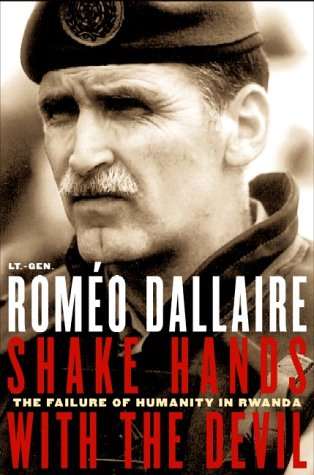
Shake Hands with the Devil: The Failure of Humanity in Rwanda
Sent to Rwanda in November 1993 as UN Commander to enforce the Arusha Peace Accords between the Rwandan Hutus and Tutsis, Lt. General Roméo Dallaire of Canada ulimately bore witness to a genocide. In Shake Hands with the Devil, Dallaire describes how the UN's leadership prohibited him from taking action that he believes could have pre-empted the genocide and then pulled out most of his troops once the genocide was underway. This is an intense, complex, and beautifully written story of how international--and bureaucratic--indifference failed the Rwandan people. Despite his impassioned efforts to stop the killing, Dallaire blamed himself for years for not having succeeded. Read More...






